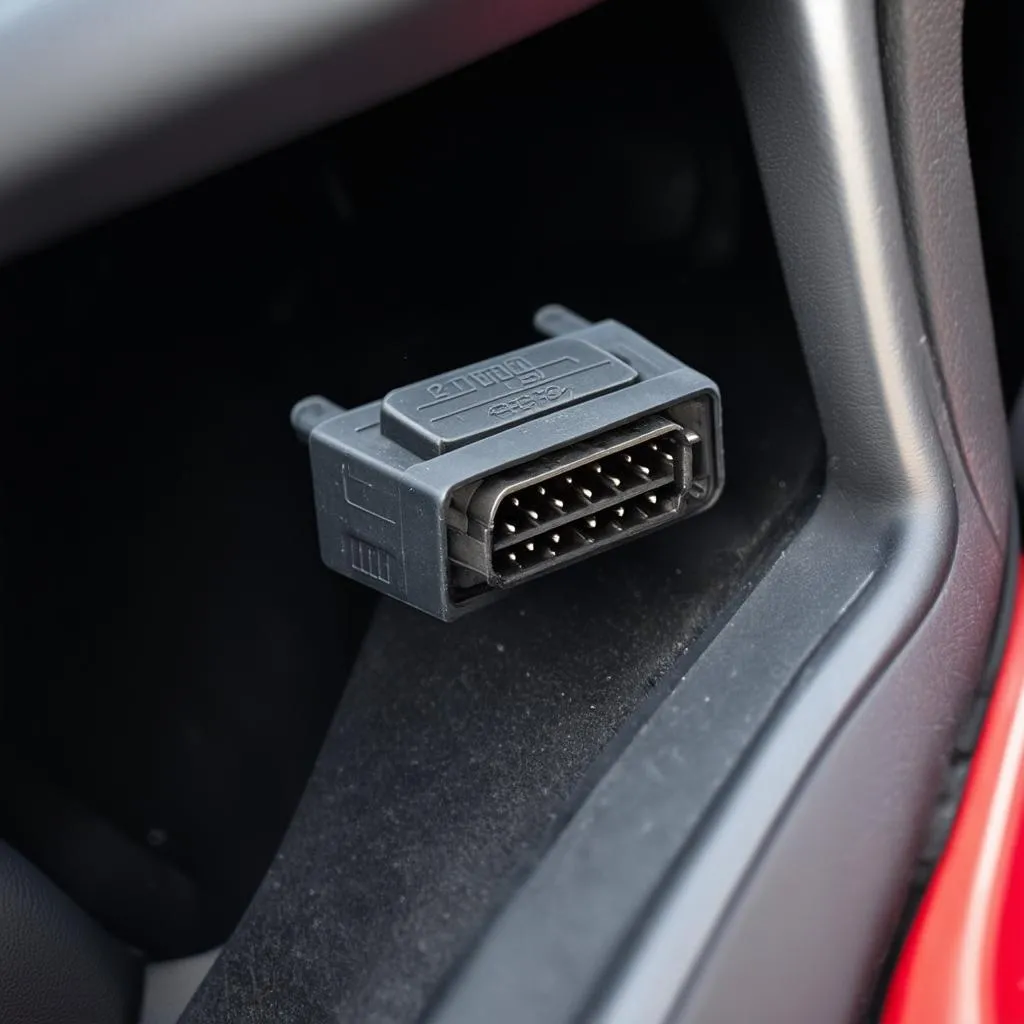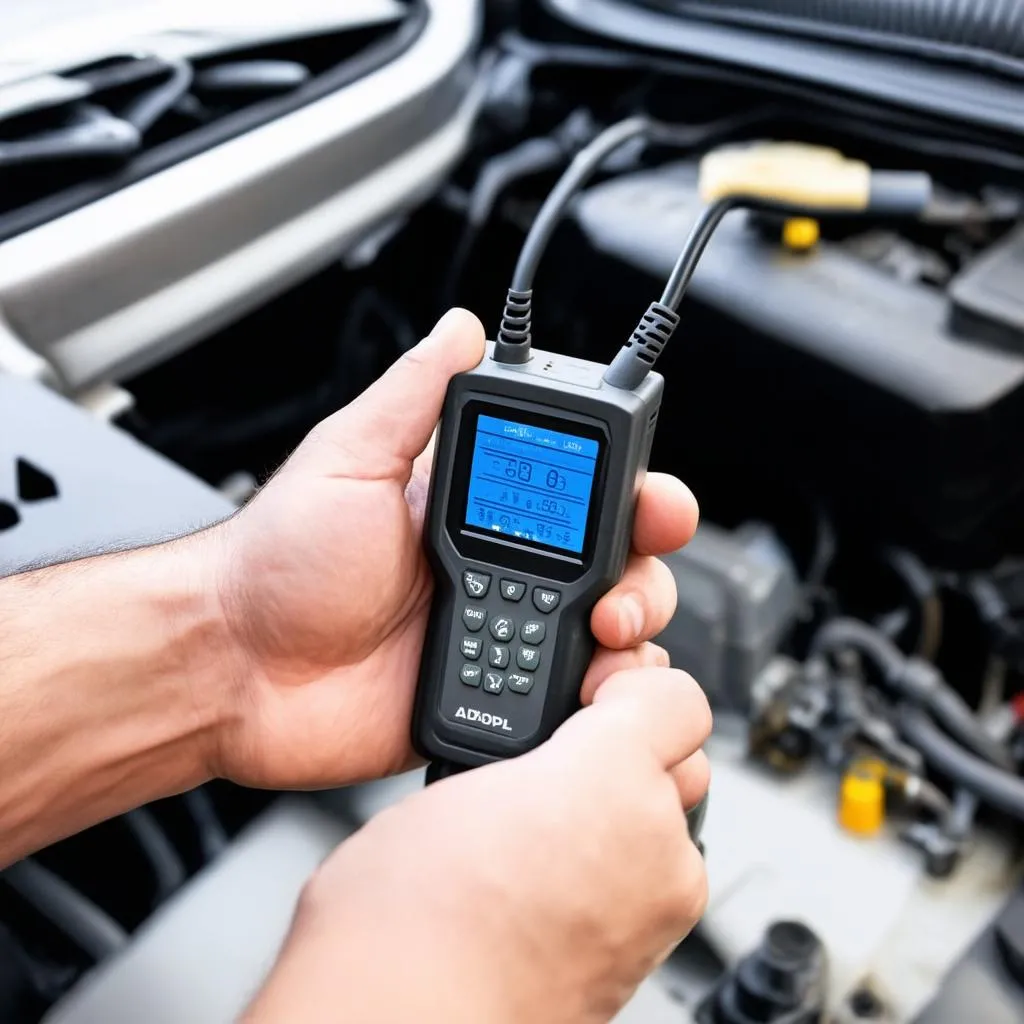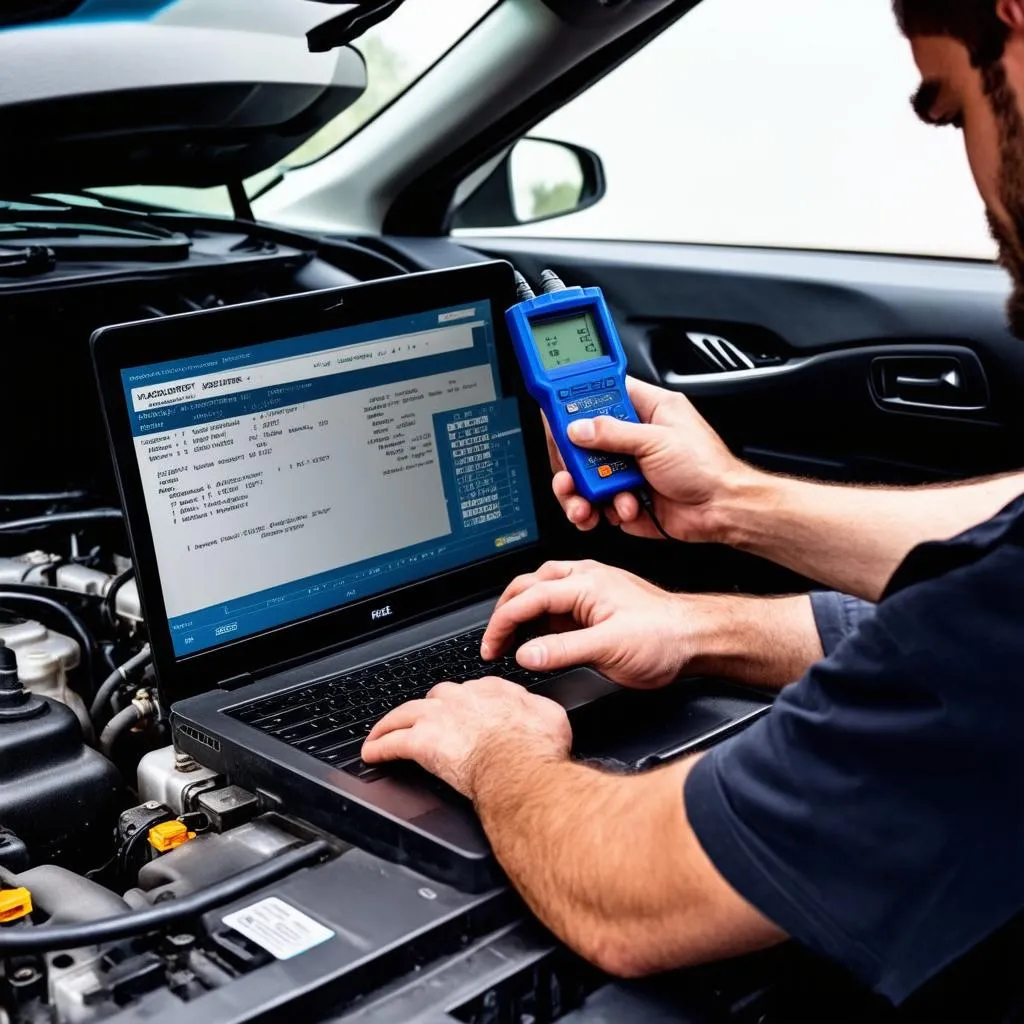“If your car’s OBD port isn’t working, you’re not alone! It’s a common problem that can be frustrating, but don’t worry, it’s often easily fixed. Let’s dive into the world of car diagnostics and uncover the mysteries behind a malfunctioning OBD port.”
What Does a Non-Working OBD Port Mean?
The OBD port, short for On-Board Diagnostics port, is your car’s gateway to its electronic heart. It’s a standard connector that allows technicians (and even DIY enthusiasts) to access your car’s computer system and retrieve diagnostic data. This information helps pinpoint problems, troubleshoot issues, and even modify performance settings.
Imagine the OBD port as a secret door that unlocks a treasure trove of information about your car’s health. But when this door is locked, it creates a real headache for both you and your mechanic.
Understanding the OBD Port’s Significance
- Diagnostic Insights: It provides crucial insights into your car’s performance, allowing technicians to identify issues and perform repairs efficiently.
- Enhanced Safety: With the OBD port, you can check your car’s safety systems like airbag status, and emissions control.
- Performance Tuning: It allows modifying performance parameters and optimizing your car’s fuel efficiency.
- Cost-Effective Repairs: Identifying problems early can help prevent major breakdowns and save money on repairs.
Common Reasons Why Your Car OBD Port Might Not Be Working
1. Damaged or Loose Connector:
One of the most common culprits is a damaged or loose OBD port connector. The port is often exposed to dirt, debris, and harsh weather conditions, which can cause wear and tear.
Imagine this: You’re driving through a dusty road, and a stray pebble bounces off your car’s bumper, landing right on the OBD port. It’s a small thing, but it could be enough to bend or loosen the connector pins, interrupting the connection.
Solution: A simple visual inspection can usually tell you if the connector is damaged or loose. If you see any bent pins or broken wires, you might need to have the connector replaced.
2. Fuses:
Fuses are designed to protect your car’s electrical system from overloads. A blown fuse in the OBD port circuit can prevent it from working correctly.
Here’s a scenario: Imagine your car’s engine is running smoothly, but suddenly the radio stops working, and you notice the OBD port isn’t responding. The likely culprit is a blown fuse related to the OBD port circuit.
Solution: Check the fuse box for a blown fuse related to the OBD port. Replacing the fuse is usually a simple and inexpensive fix.
3. Circuit Issues:
Wires connecting the OBD port to the car’s computer system can become corroded, broken, or damaged. This can disrupt the flow of data and prevent the port from working properly.
Imagine this: As you’re driving, a sudden jolt caused by a pothole or a rough road can cause wires in the OBD port circuit to become loose or damaged, leading to an interruption in communication.
Solution: If you suspect a wiring issue, you might need to take your car to a mechanic to have the wiring inspected and repaired.
4. Car’s Computer System:
In rare cases, the problem could be with the car’s computer system itself. A malfunctioning ECU (Engine Control Unit) can affect the OBD port’s functionality.
Think about this: Your car’s computer system is like the brain of your vehicle. If this brain has a glitch, it can impact other systems, including the OBD port.
Solution: If you suspect a problem with the car’s computer system, you’ll likely need to take it to a qualified mechanic for diagnostics and repair.
5. Incompatible Scanner:
Not all OBD scanners are created equal. Some scanners might not be compatible with specific car models or protocols.
Consider this: It’s like trying to open a lock with the wrong key. The scanner might not be able to communicate with your car’s computer system, even if the OBD port itself is working.
Solution: Make sure you’re using a compatible scanner. You can find information on compatible scanners for your car model online or by consulting a mechanic.
Frequently Asked Questions (FAQs)
Q: Can I Fix a Non-Working OBD Port Myself?
A: For basic troubleshooting, like checking the connector or fuses, you might be able to do it yourself. But if you suspect more complex issues like wiring problems or ECU malfunction, it’s best to seek professional help.
Q: How Do I Know If My OBD Port Is Working?
A: The most reliable way to test the OBD port is by using a diagnostic scanner. If the scanner connects and reads data, the port is likely working. If it doesn’t connect, it could be a sign of a problem.
Q: Can a Non-Working OBD Port Cause My Car To Run Differently?
A: Yes, it could. If the OBD port isn’t working, the car’s computer system might not be able to communicate with other sensors and components, leading to a variety of issues, including reduced performance, increased fuel consumption, and even warning lights.
Q: What Should I Do If My OBD Port Isn’t Working?
A: First, try the simple troubleshooting steps like checking the connector and fuses. If those don’t solve the problem, take your car to a qualified mechanic for diagnosis and repair.
Troubleshooting Tips for Car Owners
- Check the OBD port for any loose or damaged wires.
- Make sure the port is clean and free of debris.
- Check the fuse box for a blown fuse related to the OBD port.
- Avoid using cheap or generic OBD scanners, as they might not be compatible with your car.
- Consider consulting a qualified mechanic for diagnosis and repair, especially if you suspect more complex issues.
 OBD Port Location
OBD Port Location
 OBD Scanner
OBD Scanner
 Car Diagnostics
Car Diagnostics
Remember:
The OBD port is an essential component of your car’s electronic system. A malfunctioning OBD port can lead to a variety of problems, including difficulty troubleshooting issues, potential safety hazards, and reduced performance. If you’re experiencing problems with your OBD port, don’t hesitate to seek professional help.
Need Expert Help?
Contact us on Whatsapp: +84767531508 for assistance with OBD scanner software and professional car diagnostics. We have experienced automotive technicians available 24/7.
Explore More!
- Check out our guide on the best OBD Bluetooth adapters: https://obd2-scanner.net/best-obd-bluetooth-adapter/
- Learn about common VW OBD port problems: https://obd2-scanner.net/vw-obd-port-not-working/
- Understand how to monitor transmission temperature using an OBD scanner: https://obd2-scanner.net/obd-transmission-temp/
- Discover the location of the OBD port in a Tesla Model Y: https://obd2-scanner.net/tesla-model-y-obd-port-location/
- Find the best OBD scanner for your VW: https://obd2-scanner.net/best-obd-for-vw/
Let us know your thoughts!
Share your experiences with non-working OBD ports in the comments below. Have you encountered this problem before? How did you resolve it? Your insights can help other car owners!
